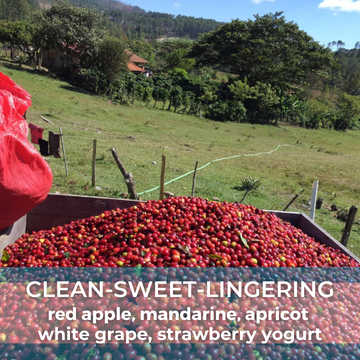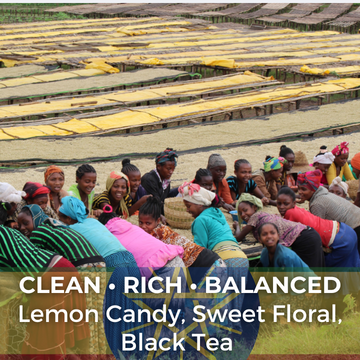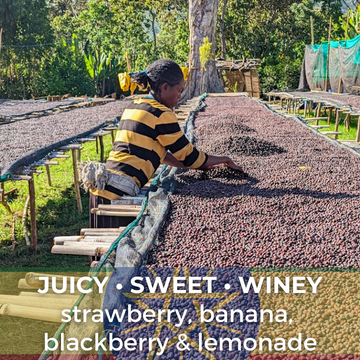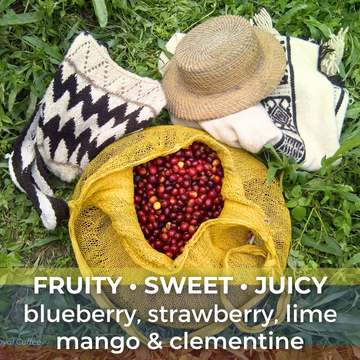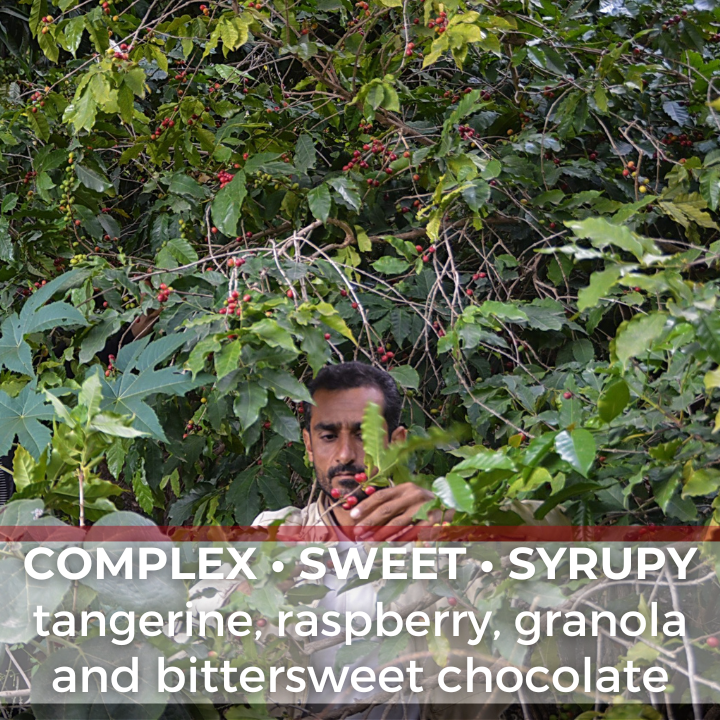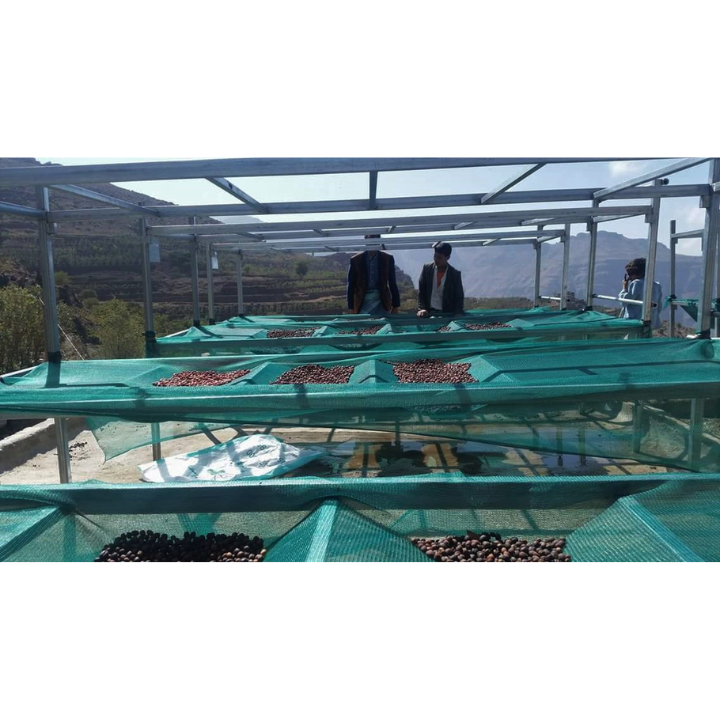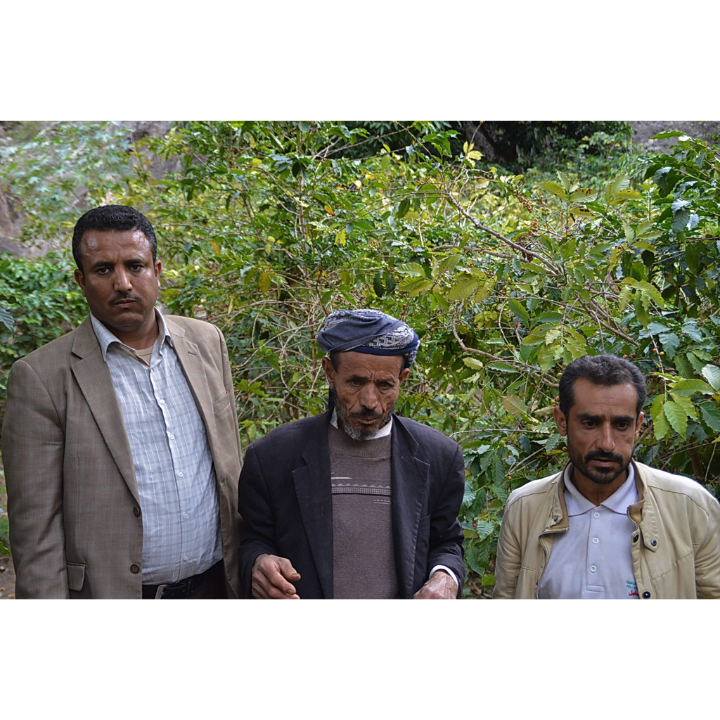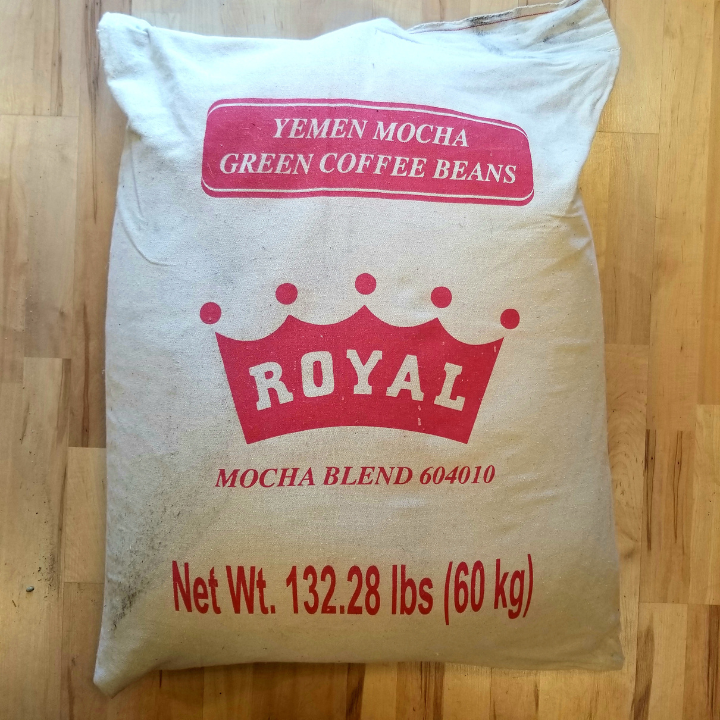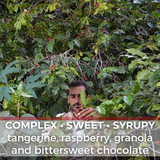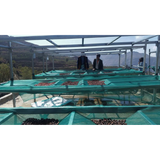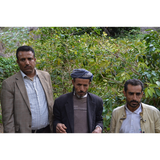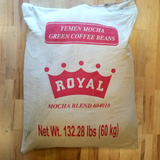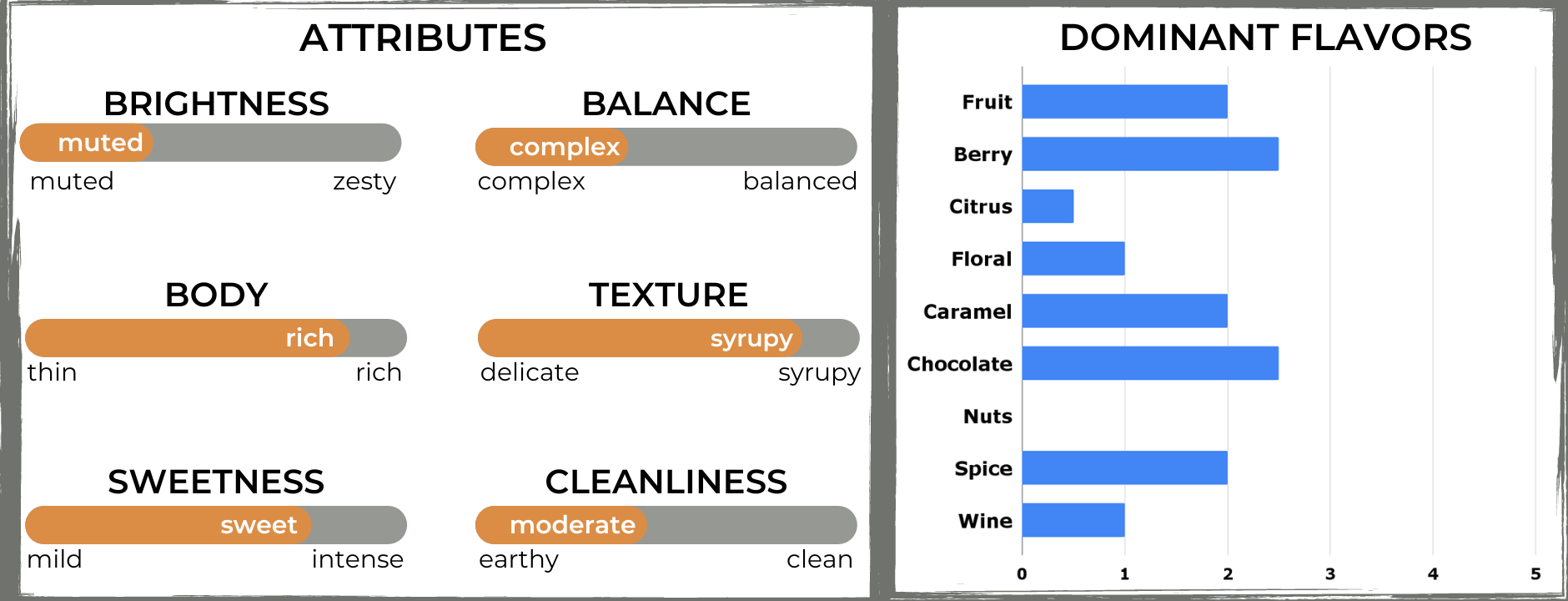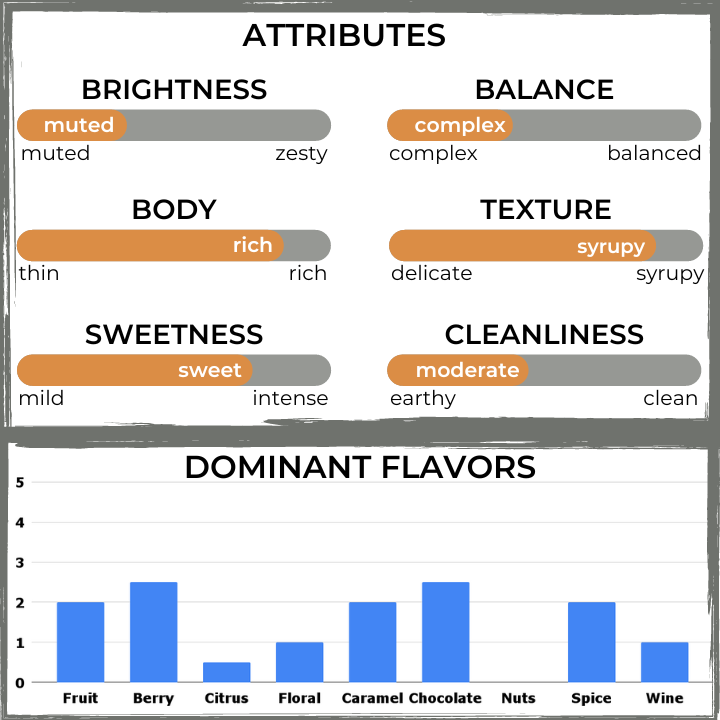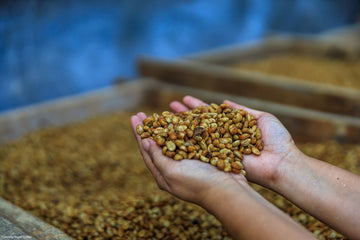Yemen Mocca Pearl of Tehama Natural
Coffee from Yemen has a depth and complexity that's difficult to describe, so one cup of this delicious Mocca is worth a thousand words. It's got sweet notes of tangerine and raspberry counterbalanced with gently spiced granola and bittersweet chocolate. And if you like syrupy, weighty coffees with low acidity, this one is a treat.
Yemen is the oldest commercial producer of coffee in the world. Sadly, nearly a decade of internal conflict has made coffee from this venerable origin more and more difficult to come by. Thankfully our friends at Royal Coffee have a decades long relationship with the Muslot family, founders of Pearl of Tehama, who have been trusted in the Yemeni coffee business since the 1970s.
Coffee from Yemen has a complexity and depth which is difficult to describe. While its cultivars originated from heirloom landraces in Ethiopia, the harsh climate of Yemen’s mountains has shaped the cup into something unique. As you’d expect, there’s some lovely tangerine and raspberry notes like you might find in a natural processed Ethiopia, but that’s where the profile diverges. Along with the sweet fruit tones, we tasted bittersweet chocolate and a biscuity/spicy note best described as granola. There’s also a deep, herbaceous undertone that becomes prominent in the lingering finish. The cup is also incredibly rich and syrupy, much heavier than you might expect. It’s like a fine aged wine: complex, round and deep.
Reminder! This coffee is raw, you must roast it before brewing
Arrival Date: August 26th, 2022. US Arrival July, 2022
Acidity & Brightness: Muted acidity, rounded sweetness
Balance & Finish: Fairly complex, lingering, herbaceous finish
Body & Texture: Full bodied and syrupy
Flavors: Tangerine, raspberry, granola & bittersweet chocolate
Grade: SHB, grown at 1700 - 2400 masl
Processing: Full natural (dry) processed. Dried on rooftops and raised beds
Grower: 615 farmers organized around Pearl of Tehama
Region: Sa’adah Governorate and Ibb Governorate, Yemen
Varietals: Jadi, Dawaery, Tuffahi
Recommended Roast Range: City to Full City (Light to Medium)
We like this coffee best at City+ (Light-Medium, tail end of first crack). For best results avoid roasts going into second crack, darker roasts will mute some of the more subtle flavors in the cup. Lighter roasts will exhibit more florality and emphasize raspberry notes while medium roasts will favor “biscuity” notes as well as spice and chocolate.
Royal Coffee - "YEMEN MOCCA PEARL OF TEHAMA is produced by legacy farmers of various sizes in the high mountains of Sa’adah and Ibb Governorate. Coffee-growing families in Sa’adah and Ibb, similar to many others across the country, tend parcels of terraced land passed through many generations. Coffee is the one crop that continues to survive above all others, both for the livelihood it provides, as well as being a deep social tradition that keeps communities together. Yemen is the oldest territory on Earth to cultivate coffee. Its seed stock, originally transported from wild arabica landraces in Ethiopia, was used to create the world’s first ever coffee farms where coffee would be grown commercially for trade across the Arabian peninsula and eventually mainland Europe. (“Arabica” itself referred to the Arabian coffee supply that was the West’s first in history.) Maintaining coffee trees in a climate as dry, high, and uniquely challenging as Yemen’s western and northern ranges, requires the kind of proven techniques that only generations of farming can bestow. Coffee farms are terraced on arid, incredibly steep slopes. Bore holes are dug manually into the rock to access individual water reserves for each tree wherever rain is scarce. Coffee trees are spaced generously, about 1000 per hectare (compared to 4000-6000 common in Latin America), both by necessity on the narrow terraces, as well as for better groundwater access and erosion control. Raising young coffee trees is a matter of hardening them for a lifetime of vicious elements and water scarcity. Older coffee trees become very spacious and tall, and often end up hanging their branches over the terrace edge, known locally as “hanging gardens”. Above the coffee, shade trees are carefully selected and positioned for how well they block water evaporation. As can be imagined, productivity is very low in such conditions. And still, over one million people work in Yemen’s coffee trade, from farm to export. Pearl of Tehama, the miller and exporter who manages all transportation, milling, and exporting of partner farms’ coffee, is a family business founded in 1970. For many years, all coffee was exported under the name of the family patriarch and founder, Ali Hiba Muslot. After his death in 1980 his three sons continued using the family name until 2012, when the family business, including other trades and retail, was split up. The coffee export business was reborn as Pearl of Tehama for Import, Export, and C.A.S, and is still owned by Ms. Fatoum Muslot, the late Muslot’s daughter. Fatoum’s eldest son, Yasser Al-Khaderi, is the company’s general manager.”
